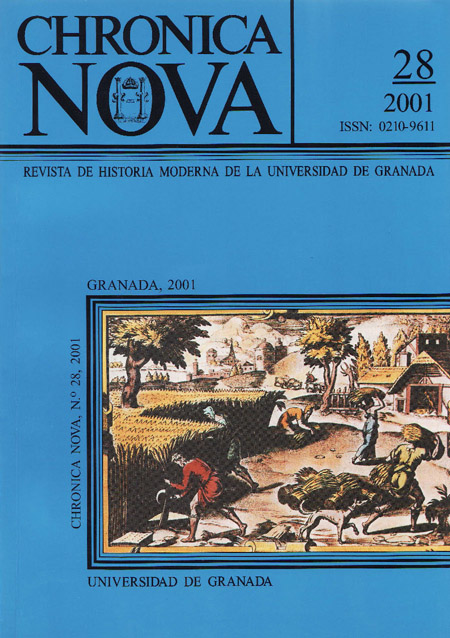English historiography: recent trends in the study of the Early Modern Period
DOI:
https://doi.org/10.30827/cn.v0i28.2021Keywords:
England, Historiography, Development, Protestantism, Absolutism, Crisis of Seventeenth CenturyAbstract
This article is a brief survey of current trends in the historiography of early modern England, noting the abundance of output as well as a concern over excessive specialisation. The ambition of bringing research on society, culture and politics together more as a way of explaining the mainstream of social change is leading to a new emphasis on ‘forms of power’. There is a new stress on the elements of continuity in early modern England. Economic change is now presented as more gradual and less revolutionary than was once thought. English attitudes, as revealed in recent research on the Reformation or the Civil War, appear fairly conservative. So, social and cultural developments, rather than precipitating political change, look more like a response to the latter — to the particular direction given by elites who have managed to take control of the reins of power at particular turning points, such as the Reformation and the Civil War. The growing role of the state as a source of social control now seems to have been the real revolution of the early modern period. And there is a new concern to place the individual, rather than long-term trends, at the centre of historical explanation.Downloads
Downloads
How to Cite
Issue
Section
License
Nuestra revista se atiene a las recomendaciones para la implementación del Artículo 37 Difusión en Acceso Abierto de la Ley de la Ciencia, la Tecnología y la Innovación:
- Los/as autores/as cuyas contribuciones sean aceptadas para su publicación en esta revista conservarán el derecho no exclusivo de utilizar sus contribuciones con fines académicos, de investigación y educativos, incluyendo el auto-archivo o depósito de los artículos aceptados en repositorios institucionales o temáticos de acceso abierto de cualquier tipo en un plazo máximo de seis meses.
- Preferiblemente se permitirá el uso de la versión publicada de las contribuciones científicas, que estarán accesibles en abierto tan pronto como sea posible.
-
Que en caso de que el trabajo sea aprobado para su publicación, el/la autor/a autoriza de manera ilimitada en el tiempo a la entidad editora para que incluya dicho texto en Chronica Nova y pueda reproducirlo, editarlo, distribuirlo, exhibirlo y comunicarlo en el país y en el extranjero por medios impresos, electrónicos, CD, Internet o cualquier otro medio conocido o por conocer.






 ISSN-e: 2445-1908
ISSN-e: 2445-1908










